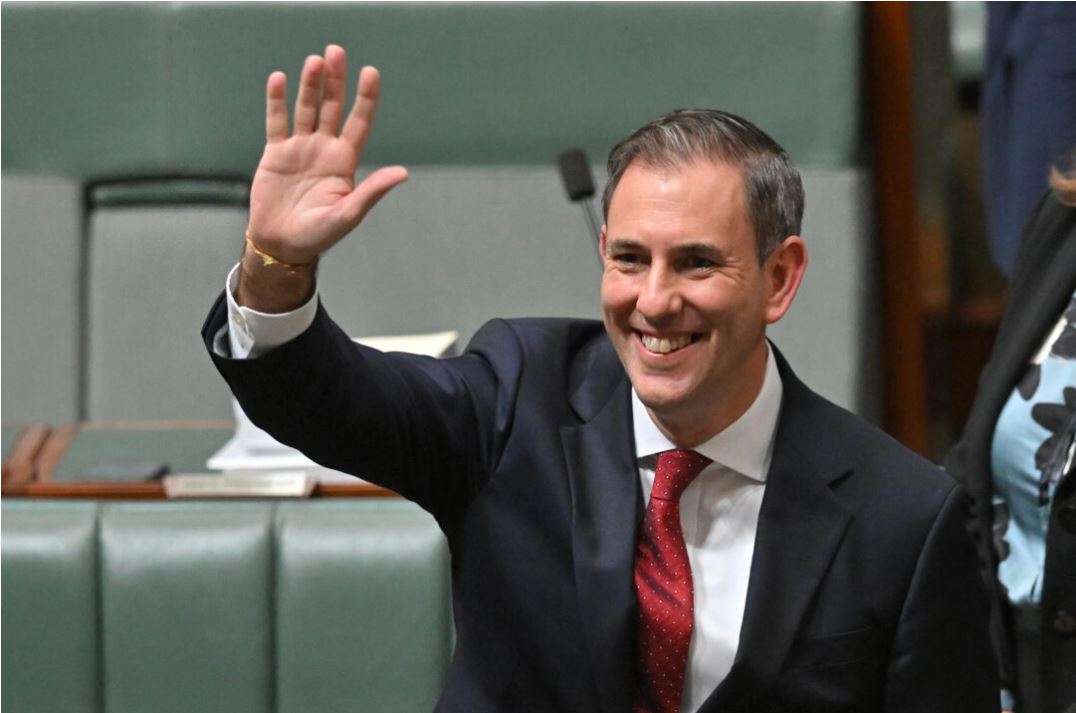The Australian economy remained flat in the March quarter, which Treasurer Jim Chalmers blamed on higher interest rates, persistent inflation, and global uncertainty.
The Australian Bureau of Statistics (ABS) reported that the national economy grew by only 0.1 percent. In nominal terms, gross domestic product rose 1.4 percent as terms of trade increased 0.2 percent.
Meanwhile, the household saving-to-income ratio declined to 0.9 percent from 1.6 percent.
“Many economies around the world are feeling the impact of higher interest rates and high but moderating inflation,” Mr. Chalmers said.
However, the treasurer also said the Albanese government was on the right track to boost economic growth, especially with the priorities of the recent federal budget.
“Against this difficult global backdrop, Australia recorded faster annual growth than most major advanced economies—faster than Canada, Italy, the United Kingdom, Japan and Germany,” Mr. Chalmers asserted.
“Since the election, Australia has also recorded faster employment growth than any major advanced economy.”
Mr. Chalmers claimed that new business investment grew under Albanese government, with an annualised average growth of 6.6 percent.
“Under our predecessors, average growth went backwards by 1.5 percent per year.”
In addition, the treasurer said the government tripled the bulk‑billing incentive and energy bill relief, which expanded health services and assistance to households.
Mr. Chalmers added that the Fair Work Commission’s recent decision to increase modern award rates by 3.75 percent would help improve household incomes. The increase is on top of the scheduled 0.5 percent rise in Superannuation Guarantee Rate.
Critics Say Flat Growth Reflects Policy Inadequacies
According to the Liberal Party, the government should have focused on inflation since day one so that the country will not be in the current economic situation.
“Today’s data confirms what Australians feel—they are poorer under Labor. This is a shocking data set and absolutely devastating for Australian households,” Mr. Taylor said.
“On any measure, Labor isn’t delivering strong economic management. The only thing keeping Australians’ heads above water in this cost-of-living crisis are their jobs.”
The Institute of Public Affairs (IPA) also pointed out that the Labor government’s strategy to attract more migrants to Australia to boost economic growth did not work based on the National Accounts report.
According to the Institute, unplanned migration is putting immense pressure on the country’s housing and infrastructure markets, leading to further economic difficulties ahead.
“It is incumbent upon the federal government to deliver sustainable economic growth through increased productivity, not by merely bringing in record numbers of arrivals we cannot accommodate,” said Daniel Wild, deputy executive director of the IPA.
Earlier, CreditorWatch Chief Economist Anneke Thompson said that moderating migration will help reduce cost of living pressures.
“The fight against inflation is still far from over, with the last stubborn categories—housing, fuel, electricity, health, education and financial and insurance services—proving difficult to get under pricing control,” Ms. Thompson said.
“Record high population growth is likely a contributing factor here, and the hope from here is that moderating incoming overseas migration helps reduce price increases on these essential services.”
Meanwhile, the Australian Retailers Association (ARA) raised concerns over the increase in modern award rates as it would also increase the cost of doing business.
“With discretionary spending slowing and operating costs rising across the board, wage increases without productivity improvements place businesses, particularly small businesses under significant pressure and can ultimately lead to price increases,” ARA CEO Paul Zahra said.
